Diesel vs. Gas Trucks: What Are the Pros & Cons?
-
- Last updated:
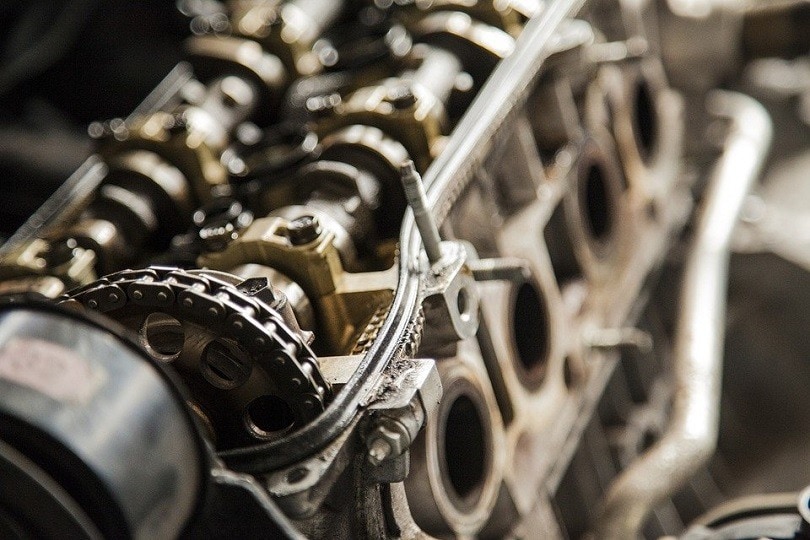
Are you getting ready to pick up your next truck? If so, you’re going to have a big decision to make. Is it going to be diesel or gas?
Diesel trucks are often associated with larger workhorses like Peterbilt or Mack semis. But to say that diesel engines are only available for big rigs is just false. As a matter of fact, most consumer truck models have a diesel version.
In this article, we’ll go over the differences between diesel and gasoline engines, the main factors you should consider between the two, and which type of truck is best for you.
Diesel Engines vs. Gas Engines: What’s the Difference?
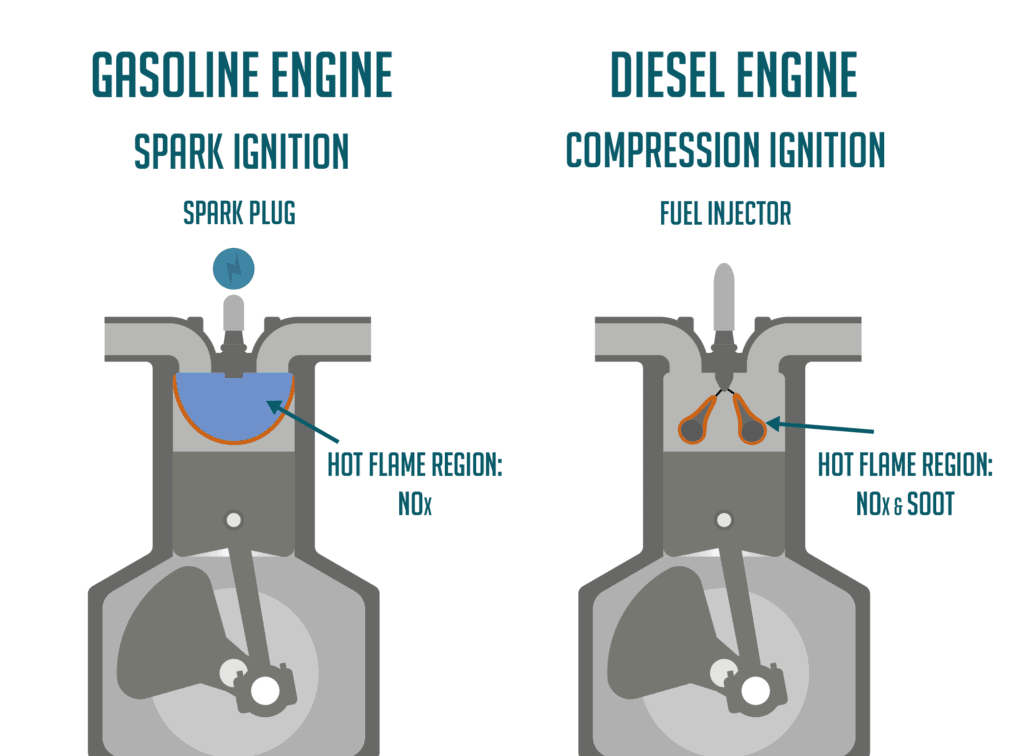
Before we jump into the different traits of each truck, you need to understand the major similarities and differences between diesel and gasoline engines.
Both are internal combustion engines. This means that a chemical combustion creates a mechanical motion outside the engine. Let’s break that down a bit as it pertains to a gasoline-powered truck.
Gas Engines
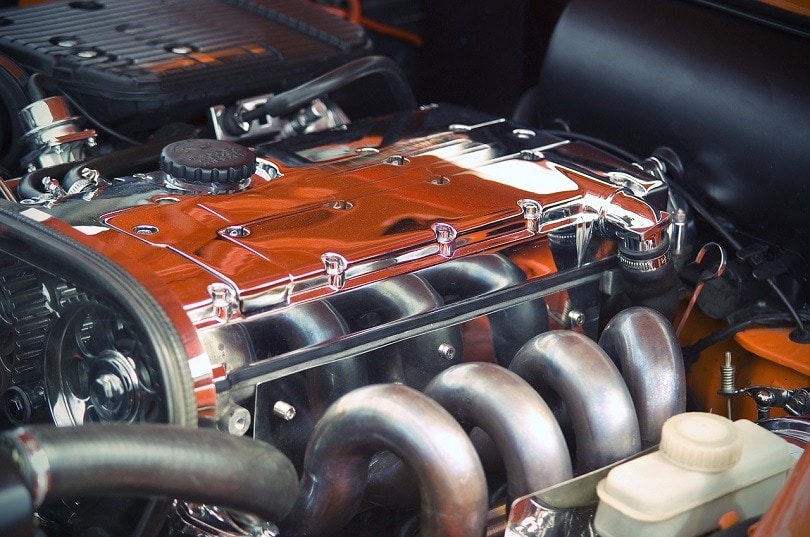
We’ll assume that we’re only dealing with a single cylinder and piston.
- A mixture of fuel and air is inserted into the piston cylinder.
- As the piston travels within the cylinder, it decreases the area inside the cylinder. This increases the pressure within the cylinder and fuel/air mixture.
- Spark plugs are used to then ignite the mixture causing a miniature explosion.
- The combustion causes the piston to travel back down the cylinder to be ready for the next cycle. It also turns a crank or camshaft to create the eventual movement of your vehicle and the piston’s next cycle.
This is an oversimplification of a four-stroke combustion cycle. And this is pretty much the same for a diesel engine but with one major difference: Diesel engines don’t need spark plugs.
- Higher Horsepower
- Lower Emission Concerns
- Cheaper
- Found Everywhere
- Lower Torque
- Lower Base Acceleration
- Less Fuel Efficient
- Not as Durable
Diesel Engines
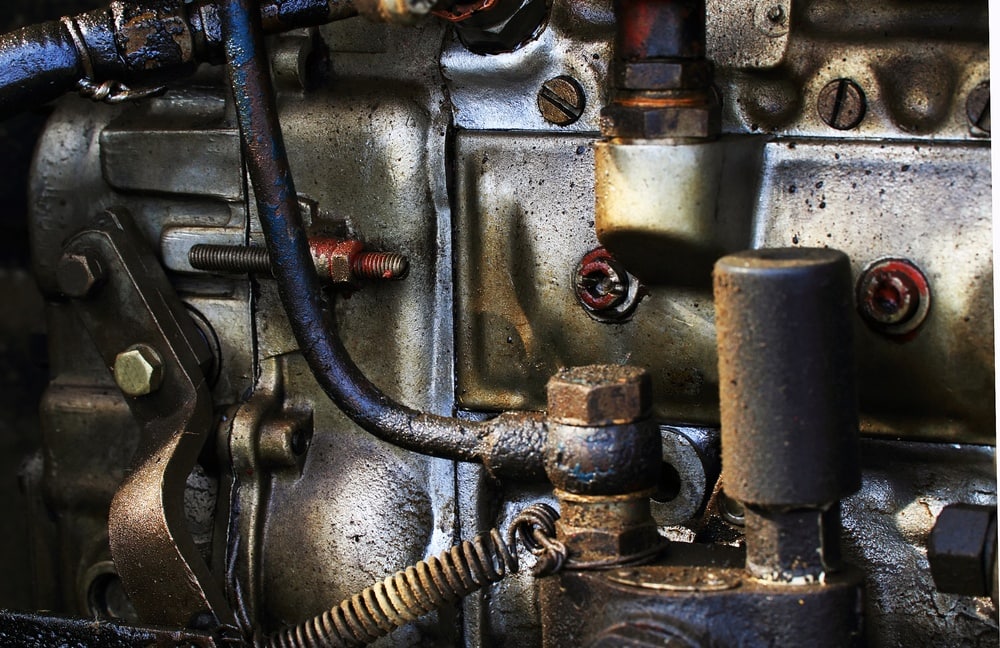
In a diesel engine, air is compressed alone without the fuel mixed in. Temperature follows pressure in these situations. When the pressure of the compressed air goes up, so does the temperature. Then, the diesel fuel is injected into the hot air, therefore, igniting it. No spark plugs required. This diesel combustion process actually has a higher combustion ratio than a standard gasoline engine, and that has a direct effect on performance.
- Higher Torque
- Higher Base Acceleration
- Better Fuel Efficiency
- More Durable
- Lower Horsepower
- Higher Noise and Pollution Emissions
- More Expensive
- Less Available
Gas vs. Diesel: Other Factors to Consider
Now that we’ve gotten that scientific mumbo-jumbo out of the way, let’s focus on real-world applications. There are eight main points to consider when deciding between diesel and gas.
1. Power
If you’re looking for raw horsepower, go with gas. Gasoline-powered trucks on average have a higher redline than diesel. This means they can push harder at higher speeds and top out higher.
For instance, when was the last time you saw a diesel-powered sports car? This is because diesel fuel has a much lower octane rating (meaning it combusts easier under pressure) than racing fuel.

2. Torque
If horsepower is going to cover the top end, then torque is really about the low end. The torque value of your truck will determine just how well your truck can do its job. It’s a measure of the twisting force applied from the engine to the drivetrain. Higher torques mean an easier time getting things moving.
So, if you’re looking to get a workhorse, grab a diesel. Diesel torque values are often much higher than their gasoline-powered counterparts. This means that diesel trucks are much more suited for hauling, towing, and other capabilities.
3. Acceleration
Alongside increased torque comes a faster acceleration. It’s not always about how fast you can go, but how fast you can get there.
Diesel trucks tend to have a higher acceleration value than gas. But they won’t reach that high redline that gas trucks can. So, if you’re racing your truck, by all means, go with gas. However, a diesel’s great for everyday work and performance.
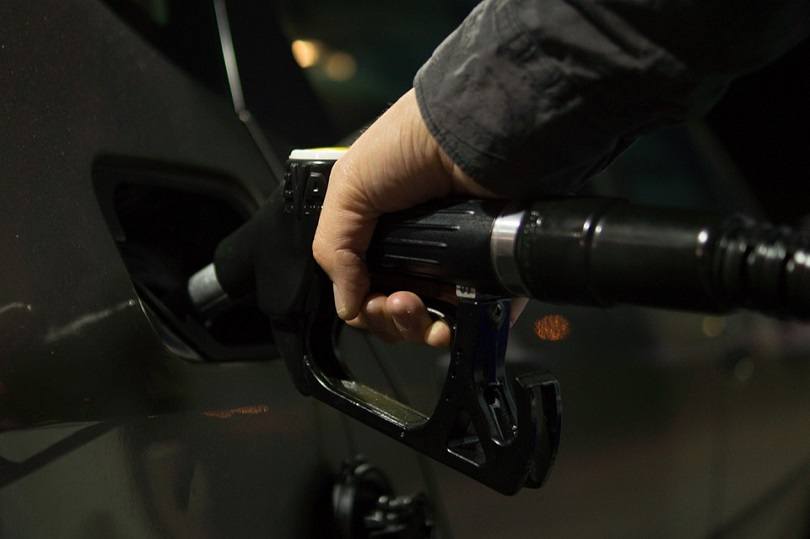
4. Fuel Efficiency
You might think that this is a really big factor when choosing between gas and diesel. But it only really makes a difference if you’re buying an older vehicle.
Previously, diesels were the champions of fuel efficiency. However, improvements in modern technology have allowed gas-powered engines to mostly catch up. Diesels still hold a slight edge, but not as much as they previously did.
5. Emissions
When it comes to emissions, there are 2 main types you’ll want to consider. Noise and pollution.
Noise
Let’s face it. Back in the day, you knew a diesel truck when you heard it. While modern tech has significantly lowered this issue, you can still hear the difference. Gas trucks just run quieter.
Pollution
Diesel fuel just doesn’t burn as clean as higher octane gasoline. Although new emission standards exist for diesels, they’ll always have the bad rap associated with higher negative emissions.
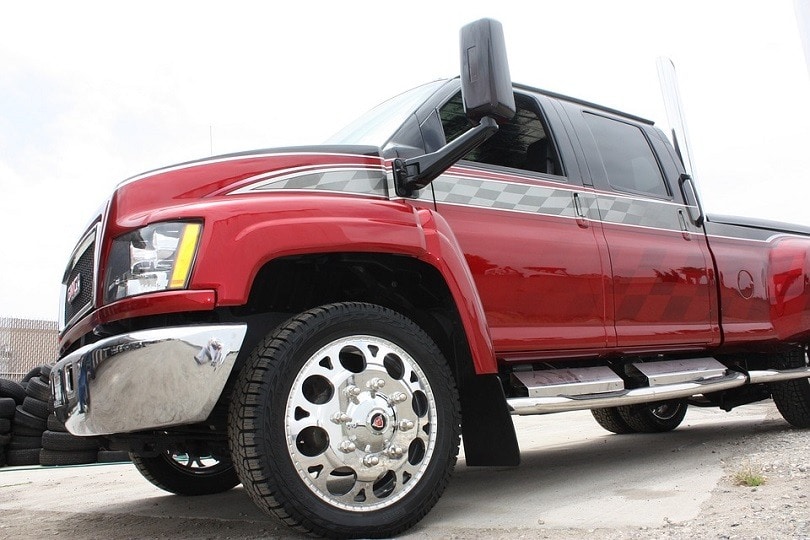
6. Durability
The sheer mechanics of how a diesel operates means it’s gotta be built tough. Coupled with their standard working uses, diesels are specifically designed to be much more reliable. And remember, a diesel doesn’t use spark plugs, either. With fewer moving parts, there’s less that can go wrong over long periods of use.
7. Cost
Diesel trucks have always been–and probably always will be–more expensive than gas trucks. They have an increased production cost which gets passed down to the consumer. Also, repair parts are found to be much more expensive than those of gas-powered cars.
There is a silver lining to this: Diesel fuel generally costs less than regular gasoline. So, in the long run, you’ll save a bit by grabbing a diesel. But that savings probably won’t kick in until after you hit the 150k mile mark.
8. Availability
As stated in the intro, most trucks nowadays come in either a gas-powered or diesel option. But that doesn’t mean that your local dealership is going to carry both. It’s much easier to find gas-powered trucks instead of diesel.
Which Truck Should You Get?
When deciding on whether to pick up a diesel or gas-powered truck, ask yourself one main question. What are you going to do with this truck?
If it’s just going to be a daily driver, we recommend picking up a gasoline-powered truck. They’re cheaper, easy to find, and have lower maintenance costs. But if you need a good work truck, a diesel sure won’t let you down.
Featured Image Credit: Engine by Free-Photos, Pixabay
Contents

